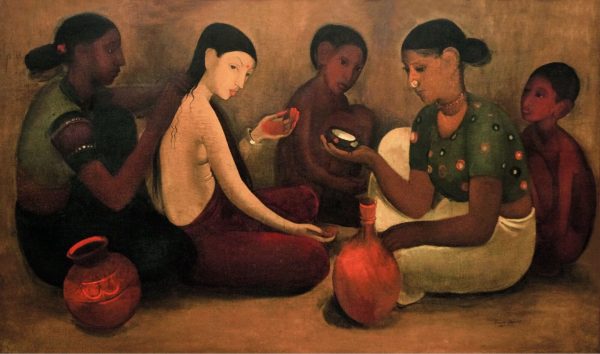
The subject of almost all of my fiction so far has been the love lives of young women. For a long time, I found this to be both extraordinarily embarrassing and also something I couldn’t help. Throughout my twenties, sex and relationships were what I thought about most, what seemed most mysterious and urgent. If I could have chosen my subject — if I could have written about any subject equally well — I would have chosen something “serious,” the sort of fiction that would inspire people to ask not “Did this really happen?” but “So what are your thoughts on [X]?” Although I have always written about young women’s relationships, I have also always secretly believed that this subject was less important than other, stereotypically male, subjects.
It is not difficult to understand where this idea came from. I began writing in the early 2000s. In many of my early fiction workshops, professors and fellow students derided stories involving girls’ periods/bodies/love lives, books with shoes and lipstick on the cover, and YA literature. At the same time, they praised fiction about the erections and affairs of John Updike and Philip Roth’s protagonists and considered books about adolescent boys — Extremely Loud and Incredibly Close, The Curious Incident of the Dog in the Night-Time — to be adult literature. (With a handful of exceptions, fiction by men and women of color was simply not mentioned). When fiction by women was taken seriously it was typically 1) about a middle-aged man (Bel Canto, The Shipping News) 2) an exception to be apologized for (“I certainly didn’t expect to like a book called Housekeeping”) or 3) fiction that asserted the author’s credibility through intertextuality, extensive research, or historical commentary (The Great Fire, Beloved, A Thousand Acres). In the rare instances in which authors who wrote about women’s love lives were recommended by male classmates and teachers (Lorrie Moore, Mary Gaitskill), their stories were almost always told in a distanced third person that indicated that the author was not simply more intelligent than the characters, but also making fun of them. Zoe Hendricks, for instance, the protagonist of Moore’s famous “You’re Ugly, Too,” is introduced like this: “She was almost pretty, but her face showed the strain and ambition of always having been close but not quite.” You could take a story about a woman’s love life seriously as long as the story itself appeared not to.

Leave a Reply